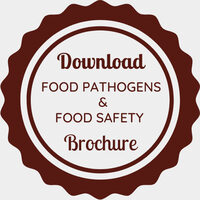9th International Conference on Food Pathogen and Food Safety
Paris, France

Nahla Mohamed Hassan Mohamed
Nutritional sciences, University of Khartoum
Title: Effect of Vitamin E (alfa-tocopherol) Supplementation on Hemato-biochemical Profile of Race Stallions Horses
Biography
Biography: Nahla Mohamed Hassan Mohamed
Abstract
This study was conducted with the objective of determining the effect of vitamin E (α-tocopherol) supplementation on hemato-biochemical Parameters of stallion race horses in Khartoum State. The field study was carried out using 21 animals of gelding stallions race horses, thoroughbred, with average body weight 300 ± 60 kg and average age was 7 years. The horses were housed in three stables and all animals were fed green alfalfa and concentrates twice a day. The concentrate was supplemented with three levels of Vitamin E (0, 2000 IU, 3000 IU kg /feed) and 7animals were a assigned for each treatment. The experiment was carried out in two periods, the first during the period from November to December 2016 and the second from March to April 2017. Blood samples were collected from the jugular vein at the end experiments in both winter and summer season. Blood samples and serum were used to determine hemato-biochemical parameters. Statistical Analysis of data used SPSS for Windows version 20.0. Factorial Randomized Design with 2×3 (2 seasons and 3 levels of vitamin E) was used to conduct the experiments. The results indicated that with respect to the hematology parameters: HB, MCH, MCHC MCV, PCV, and TRBC increased significantly (P≤ 0.01) with increasing the level of vit. E in both winter and summer seasons. Increasing the level of vit. E resulted in positive decreased and significant differences (P≤ 0.01) in TWBC in summer season, and neutrophil and Basophil in winter season. The results of biochemical parameters: triglyceride, cholesterol (LDL, VLDL), albumin, globulin and uric acid decreased significantly (P≤ 0.01), while glucose and HDL increased in both seasons. Moreover, a significant (P≤ 0.01) decreased were detected in the liver enzymes AST, ALT, ALP and kidney function test 3 (creatinine and urea) in both winter and summer season. Furthermore, clotting time and serum vitamin E level increased significantly (P≤ 0.01) in both seasons. During the interaction between treatments and seasons, there were no significant between seasons and treatments in HB, MCV, PCV, Basophile, Triglyceride, Cholesterol, HDL, AST, Urea, Body Weight and Vitamin E Serum. And there were significant between seasons and treatments in MCHC, TRBC, TWBC, Neutrophil, Lymphocytes, Monocyte, Esinophil, Glucose, LDL, VLDL, Albumin, Uric acid, ALT, ALP, Creatinine and Clotting Time. Vitamin E supplementation had positively influenced in some hematology and biochemical parameters in stallions race horses. It is recommended to use a scientific approach for feeding horses to avoid malnutrition and diseases.


